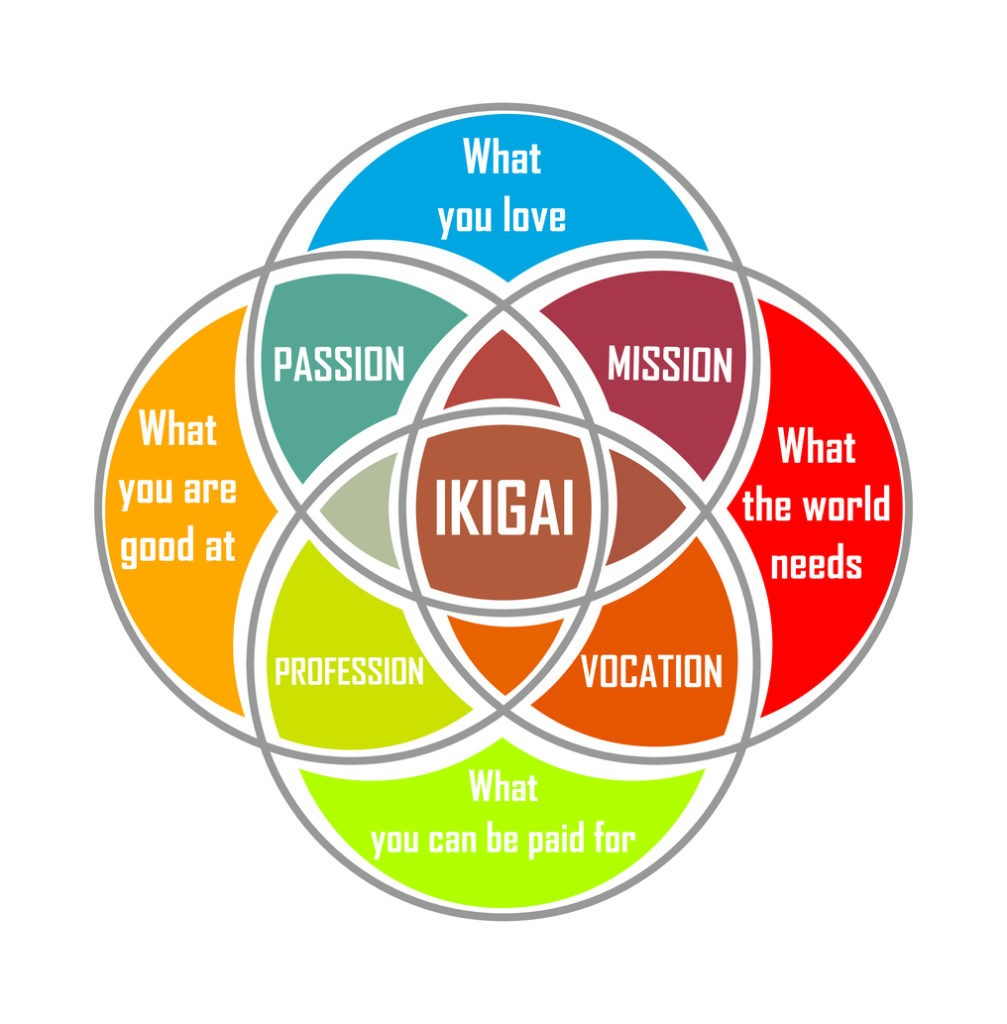Scott Langley shares how the Japanese concept of ikigai can and should be applied to our approach to business.
We have been lied to.
Perhaps with the best of intentions – maybe you were lied to by people who loved you deeply. Chances are, they were trying to keep you safe and protect you from a life of scarcity or even poverty. But it was still a lie, nonetheless.
In essence, we are sold the lie growing up, in one form or another, that we need to find some way of making money and that this is the most important thing.
Find a job that pays the bills. The end.
I believed this lie for many years. And as an idea, it certainly has a lot of merits, especially in times like this. Nobody would look down on someone who takes a job to provide for their family. But apart from the financial compensation, I wonder what effect that this ‘job that pays the bills’ will have on the person’s overall state of being after two or three decades when it is not aligned with who they are.
What does a job like that do to a person’s mental health when it is not aligned to their values and solving problems they see in the world? Or worse, when that job plays a role in causing some of the world’s most significant issues? What does it do to their motivation, attitude and team spirit when it’s not in sync with their passions, gifts and talents?
Putting numbers to it
A study of 50 years of Gallup Poll data on the topic of leadership, which included more than 20 000 in-depth interviews with senior leaders, 10 000 employees and more than one million work teams, showed some disturbing data.
“In the workplace, when an organisation’s leadership fails to focus on individuals’ strengths, the odds of an employee being engaged are a dismal 1 in 11 (9%). But when an organisation’s leadership focuses on the strengths of its employees, the odds soar to almost 3 in 4 (73%).”
I would agree that making money is essential. But I would argue that it is not the most important thing. I would have you consider that there is a better way.
A different approach
This year I discovered an approach that has changed my life forever.
The idea is a Japanese concept called ikigai, which roughly translates to ‘reason for being’. Perhaps what Westerners would call ‘purpose’, or meaning in life.
Some people feel a deep frustration, rooted in the conflict of their passions, with what consumes most of their waking hours. Others are plagued by their awareness of need in the world and their ability to meet it somehow but cannot find a way to fund this enterprise. People like me live the majority of their lives without clarity or certainty about their passions, and need a guided experience to help discover and confirm these for themselves.
These frustrations generally stem from unawareness or misunderstanding of this concept of ikigai, which is best understood through its framework.
Consider these aspects of who you are as four overlapping circles on a Venn diagram:
- Your delight – what you love
- Your talents – what you’re good at
- Your skills – what you can be paid for
- Your cause – what the world needs.
Most in the West opt for the overlap of our profession and our vocation, leading us to be comfortable but eventually leaving us empty and devoid of meaning in life.
Your ikigai is found in the balance of all four of these domains.
Life-changing thinking
When I understood this concept, everything changed. I realised that my ikigai was the key to my purpose, mission in the world, happiness and profit.
Your ikigai is your superpower; it is your X-factor. When you use it in a way that solves problems for the people you love serving, your life will never be the same.
And you will never again believe the lie that jobs are only for paying the bills.
Scott unpacks ikigai in the September/October 2021 edition of Meetings magazine. Read the full article here.





